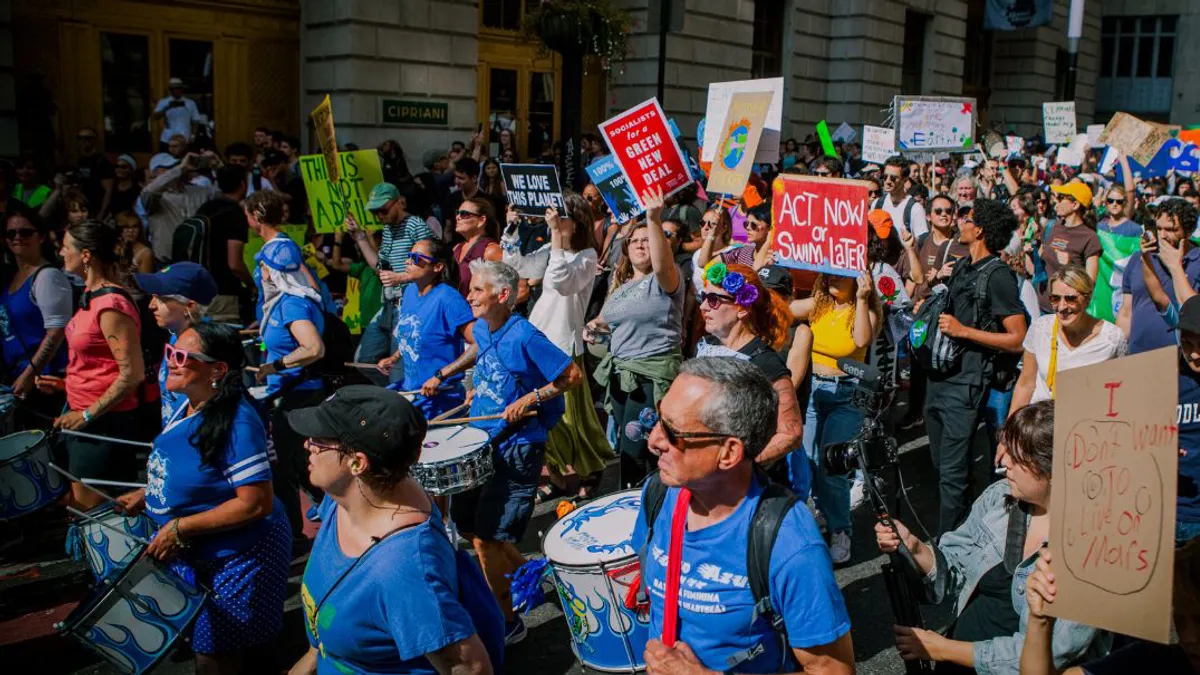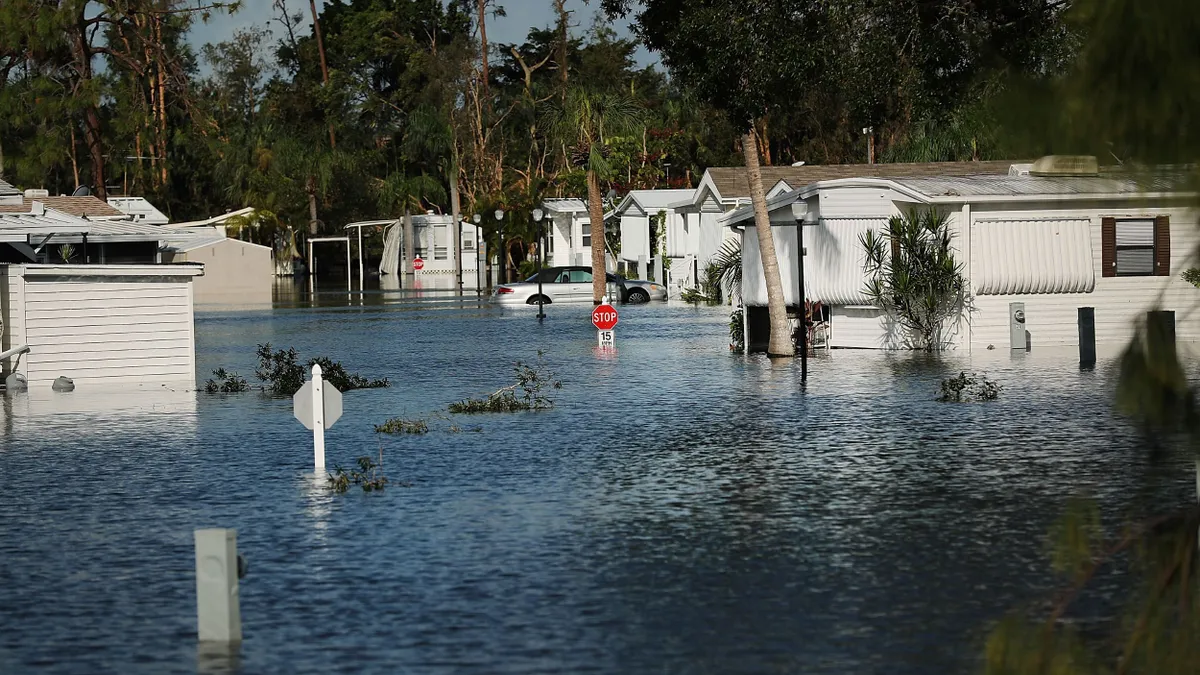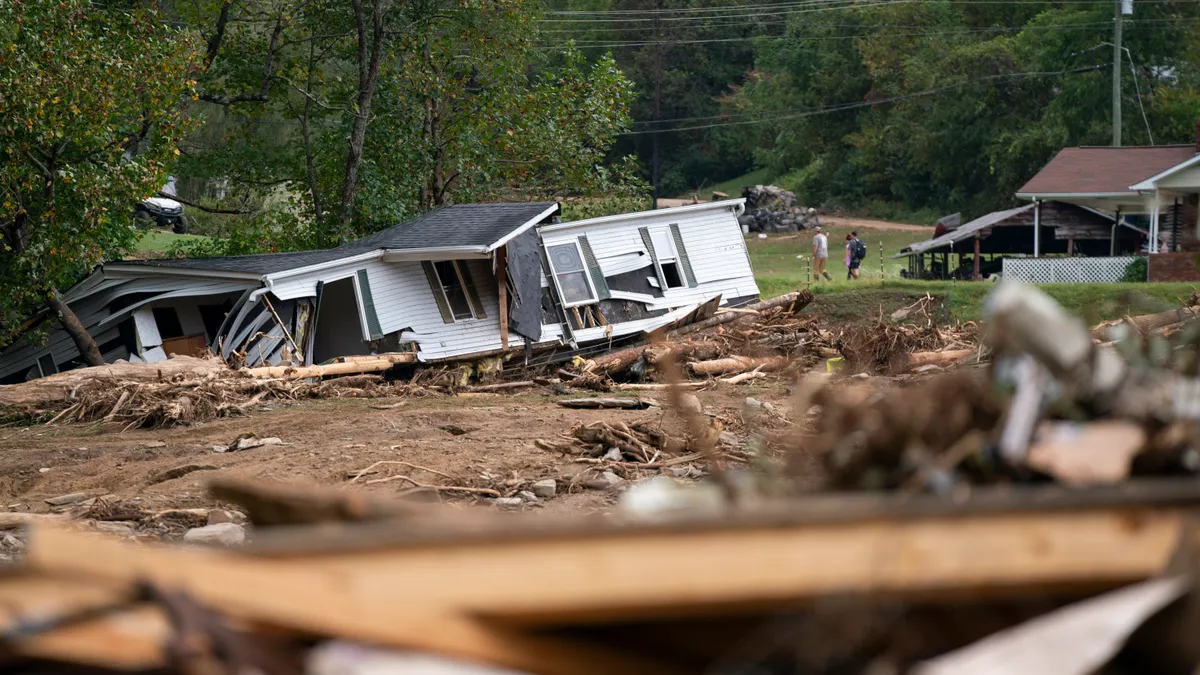Hundreds of thousands of climate advocates have marched on city streets this year to demand governmental action in the fight against climate change. As more protests near, an increasing number of cities have matched the reverberating sense of urgency with climate emergency declarations to drive policy.
Around 50 cities and counties in the United States have made such declarations, according to campaign group The Climate Mobilization, which urges a level of "World War II-scale" efforts to reverse the effects of global warming and cut emissions back to pre-industrialization levels. The Darebin City Council in Victoria, Australia, became the first city in the world to declare a climate emergency on Dec. 5, 2016, inspiring others to follow suit.
The trend recently spread to the U.S. and is growing, with cities viewing it as a way to hold themselves accountable on ambitious climate goals by pledging to urgently cut emissions and make their economies greener.
"This may be coming to your city as a demand soon," Ezra Silk, director of strategy and policy at The Climate Mobilization, told Smart Cities Dive.
The emergency movement
In the U.S., it was Hoboken, NJ that broke new ground by declaring the country's first climate emergency in November 2017, calling for citywide carbon neutrality by 2027. Since then, cities as large as New York have made declarations, while the smallest settlement to join the trend was Crystal Bay Township, MN, a town of 600 people, according to The Climate Mobilization.
A template climate emergency resolution produced by The Climate Mobilization notes the extraordinary effects set to be felt from climate change, and highlights the need for the accelerated removal of fossil fuels, an end to greenhouse gas emissions and "an end to the Sixth Mass Extinction through widespread conservation and restoration of ecosystems."
"When we launched this with our partners in Australia, we had something very specific in mind, which was a local government — by declaring a climate emergency — will take responsibility for the full global problem and for catalyzing the global response needed to reverse climate change and restore pre-industrial climate conditions," Silk said. "It's kind of a radical idea."
Kelly Shultz, a member of the Environment team at Bloomberg Philanthropies, noted that it is not just mayors driving these declarations, but also elected leaders who recognize the need to act fast.
"I really see it as a signal that climate action is really a priority across the entire city, not just for the mayor, which is really exciting," Shultz told Smart Cities Dive.
Those declarations have also been driven by an abundance of climate strikes. A generational shift has taken place inside city halls, where young people have advocated for climate emergency declarations and warned that their futures are at stake.
"You might not see it at first but everything contributes to climate change: how we drive, how we grow our food, how we design buildings," 11-year-old Alex Hanna testified to the Albuquerque, NM City Council in September as it considered its emergency declaration. "These all need to change, and this action plan can help us get there. I say that this should not just be an action plan, it should be our new reality."
For organizers on the ground in Albuquerque, located in a state known for being a major producer of natural gas and with temperatures and the risk of drought rising, it has been rewarding to see young residents so engaged.
"Young people right now have been incredibly engaged for a while because of where we are," Martha Engberg, a coordinator and climate justice organizer at the social justice advocacy group the Albuquerque Center for Peace and Justice, told Smart Cities Dive. "Sometimes they're the ones mobilizing us and taking leadership, which has been amazing."
Some of the world's biggest companies are also bringing urgency to climate action. In an April letter to The Times of London, a swath of CEOs from a variety of industries called for businesses to make an emergency declaration and "urgently redesign entire industries and businesses, using science-based targets."
In May, Dale Vince, the founder of renewable energy firm Ecotricity, announced in a Facebook post that he was declaring a climate emergency for his company and saying that "'business as usual' is a major part of the problem."
The sharing of early learnings has already borne fruit in the form of the American Cities Climate Challenge Climate Action Playbook, a guide that highlights 30 high-impact actions in 25 cities. Bloomberg Philanthropies officials said if the 100 largest U.S. cities took on the playbook’s strategies, their total combined emissions would drop by 28.5%, meeting their share of the U.S. national target of reducing emissions by 26-28% by 2025.
It would also result in carbon reductions of 224 million metric tons, the equivalent of taking 47.5 million cars off the road for a year or shutting down 57 coal fired power plants for one year.
Emergencies as policy
Once a climate emergency is declared by a city, it is often used as a launchpad for some ambitious goals and policies. For example, in the wake of its climate emergency declaration, Berkeley, CA passed a historic law banning the use of natural gas in new buildings and mandating electrification, noting that the move was driven by that declaration. San Jose, CA made similar moves after its emergency declaration, in addition to a series of pledges around going zero waste and supporting a federal carbon tax.
"Sometimes [young people are] the ones mobilizing us and taking leadership, which has been amazing."

Martha Engberg
Coordinator and Climate Justice Organizer, Albuquerque Center for Peace and Justice
While such pledges do not explicitly call for residents to change their habits, they do show the desire for change at the local level, Silk said.
"There's really a lot of interesting experimentation going on right now around how to do a local climate emergency response, and it's exciting to see the social movement momentum around it, but also how local government officials are stepping up in response to the challenge," Silk said.
In putting forward new policies that stem from their climate emergency declarations, cities may cause some heartburn for businesses, which may be required to do things differently to comply. Lisa Jacobson, executive director of the Business Council for Sustainable Energy (BCSE), said the business community can be a valuable ally in the formulation of policy.
"One of the things we've been concerned about is policies that are too prescriptive on the pathway to achieve those goals," Jacobson told Smart Cities Dive. "We feel that you need every technology we currently have, and every possible one we may bring to the table. Policies that are creating lists of in and out is not helpful right now. What the business community needs is the flexibility to do these things as cost-effectively as possible if they are being asked to implement."
Los Angeles has taken a unique approach. While the city hasn't yet formally declared an emergency, it moved to establish a dedicated "Climate Emergency Mobilization Department," the first such department in the world, as part of its citywide Green New Deal.
In a statement earlier this year, Councilmember Paul Koretz said the department would have a mission to "protect all residents, especially the most vulnerable, from the health and economic impacts of the climate crisis by ensuring a rapid and equitable just transition... and the right to a healthy, egalitarian quality of life for future generations."
L.A.'s Chief Sustainability Officer Lauren Faber told Smart Cities Dive in an interview earlier this year that it is a big commitment but fighting climate change needs to be a part of every policy decision, especially in something as far-reaching as a Green New Deal.
"We wanted to be able to show what a Green New Deal really means," Faber said. "To us, that means acting with urgency on climate change, that means ensuring that we are focused on the most disadvantaged communities in LA and really leading with community implementation. That we're ensuring an inclusive green economy, that we are making sure everyone has the ability to join the green economy and a just transition within the workforce."
Many declarations place a big emphasis on community engagement, and the need to work with communities in cities often on the front-line feeling the effects of climate change. Resident mistrust can affect all manner of city-level initiatives, so it will be key for leaders to be deliberate in their engagement, as promised in their emergency declarations.
"One of the most important things for me was really putting front-line communities at the forefront of the policy decisions and creating a system for community engagement that makes participation really easily accessible for those communities that have already bore the brunt of the impacts of climate change and the impacts of environmental issues," Engberg said.
And that community engagement extends to the business community, which Jacobson said prioritizes certainty above all. Making sure they are a partner in the process can avoid difficulties down the road, which could include litigation as a worst-case scenario.
"I think the first thing that the business community at large cares about is certainty," Jacobson said. "To the extent that these types of declarations can provide them a path so that they can plan and expand, or change their businesses, or know that certain changes are likely to be coming down the pike, they have more information."
Accountability
Cities must also consider how they hold themselves accountable to their ambitious goals. Some environmental leaders have expressed concerns about the compressed timelines of climate efforts, and the extra onus of an emergency declaration could increase the pressure.
But there are ideas floating around that could help cities keep to their promises. At an event hosted by the World Resources Institute (WRI) in September, Charles Hernick, director of policy and advocacy at Citizens for Responsible Energy Solutions, said the federal government could help localities track their climate goals by introducing its own version of the greenhouse gas emissions registry established under the Paris agreement.
Providing that framework could enhance accountability and transparency, he said, though it may be unlikely given that the Trump administration has doubled down on withdrawing the U.S. from the Paris climate accord.
Brian Tucker / Industry Dive
With the federal government unlikely to step in any time soon, there are some other alternatives. Shultz said Bloomberg Philanthropies' American Cities Climate Challenge can help cities learn best practices from each other and encourages transparency and accountability. It also helps cities work even faster toward climate goals.
"I think what we're going to see more of in the future is the spreading of these proven policies and programs that we know make a difference," she said. "We've really seen a phase change the last couple of years, where we're moving beyond just creating a climate action plan and announcing a lofty goal, but actually announcing new policy and putting new programs on the books."
For Los Angeles, having a full measurement of its emissions in the form of a greenhouse gas inventory is key, as well as understanding where the city is on other goals like existing park access, the use of transit over private vehicles and the use of solar and renewables creates transparency. With that transparency, it ensures the city knows where it wants to go and means it can be held to account.
"Spending some time on data and getting a sense of where you are as a city in the areas that are highest priority is really important for science-based policy-making, but also really important from an accountability standpoint," Faber said. "We want to make sure that we're being accountable for the actions we're taking, and the commitments we're making... That transparency is a key part of it."




















